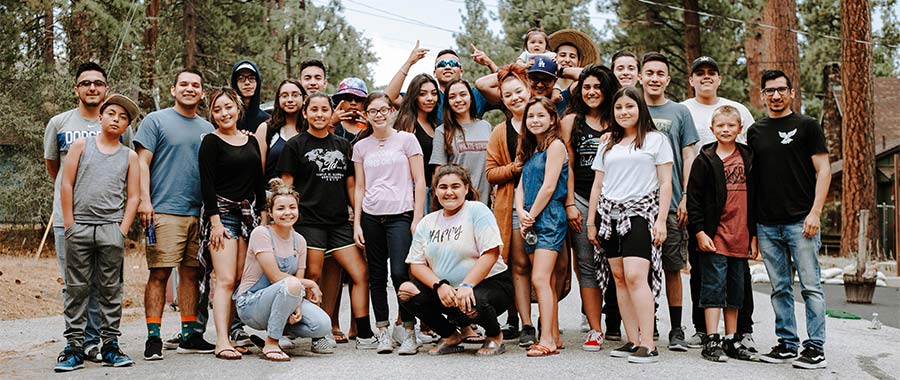The Bahá’í teachings espouse a profound understanding of diversity that transcends mere appreciation. While acknowledging diversity is an integral step in fostering harmony, it is insufficient if not accompanied by deeper engagement and active participation in the collective human experience. This article explores the intricate dimensions of the Bahá’í perspective on diversity and elucidates why appreciation alone falls short of the transformative potential embedded in the unity of mankind.
One of the foundational precepts of the Bahá’í Faith is the oneness of humanity. This principle posits that all humans, regardless of race, nationality, or creed, are members of a single family. However, the mere recognition of this oneness can lead to complacency if it does not catalyze actions that foster genuine connections and understanding among diverse groups. To appreciate diversity without engaging with it is akin to observing a beautiful painting from a distance rather than immersing oneself in its rich textures and intricate layers.
Active engagement is vital. The mere act of recognizing and respecting differences should evolve into meaningful dialogues that challenge prejudices and dismantle barriers. This requires individuals to not only entertain the idea of diversity but to incorporate it into the fabric of their lives. Inviting voices from various backgrounds into discussions and decision-making processes is paramount. This holistic approach not only enriches the discourse but also cultivates empathy and understanding. Consequently, the Bahá’í teachings advocate for a deeper introspection, where individuals examine their own biases, privileges, and preconceived notions.
Moreover, Bahá’í teachings emphasize the necessity of collaborative action. Appreciation is inherently passive; thus, it is essential to shift the focus towards proactive involvement in promoting social justice. Social change arises when individuals collectively mobilize to address systemic injustices. This entails not only standing in solidarity with marginalized communities but also advocating for policies that ensure equity and inclusivity. Historical contexts show that significant societal progress stemmed from collective initiatives that sought to confront and rectify injustices encompassing racial, economic, and gender disparities.
The Bahá’í perspective extends to the spiritual implications of engaging with diversity. Recognizing every individual as a manifestation of divine attributes inspires a profound respect for humanity. This spiritual kinship fosters an environment where love, compassion, and unity flourish. Instead of merely admiring diversity, the Bahá’í teachings guide adherents to participate in the spiritual evolution of society, which is contingent upon the recognition of interdependence among various groups. Such a paradigm shift encourages actions that reflect the shared humanity intrinsic to all.
In further elaborating on the dynamics of diversity, it is imperative to acknowledge the importance of education. Enlightened minds are vital in cultivating a society where diversity is not just pointed out but celebrated through informed engagement. Education should not merely relay knowledge but also instill values of inclusivity and respect from an early age. By fostering environments where students engage with diverse perspectives, the counterproductive tendencies that lead to xenophobia and intolerance can be mitigated. Consequently, lifelong learning becomes an essential practice in nurturing respect for diversity at every stage of life.
Communities also play a crucial role in fostering an environment that transcends superficial appreciation of diversity. Bahá’í teachings advocate for inclusive community-building initiatives, which provide spaces for individuals from varied backgrounds to engage in dialogues and collaborative projects. These communal efforts pave the way for shared experiences that foster genuine understanding and camaraderie. Building bridges between diverse communities is essential in creating a tapestry that embraces every thread, ultimately strengthening the societal weave.
Furthermore, it is critical to engage with the arts and culture as mediums for promoting a deeper understanding of diversity. Cultural expressions—whether through literature, music, or visual arts—serve as powerful tools for transcending ideological divides. By appreciating and promoting the richness of various cultural heritages, individuals can foster a collective identity that celebrates both uniqueness and shared experiences. The Bahá’í Faith’s emphasis on the arts reflects this belief, advocating for a vibrant cultural exchange that can lead to greater unity.
Accountability is another essential component in transitioning from mere appreciation to active engagement. Organizations and individuals alike must recognize their role in perpetuating existing narratives and systems. This includes reflecting on practices that may inadvertently uphold discrimination or exclusion. The Bahá’í teachings encourage a culture of accountability, where individuals are empowered to voice concerns and advocate for change within their spheres of influence. By fostering a milieu where constructive feedback is welcomed, collective growth towards inclusivity can be achieved.
Lastly, the journey towards genuine engagement with diversity is one ripe with challenges. It necessitates resilience, humility, and the courage to confront discomfort. Individuals must be willing to confront their own biases and to embrace the complexity that comes with diverse perspectives. The Bahá’í teachings guide followers towards acknowledging and embracing these challenges as essential elements of spiritual growth and community development.
In conclusion, while appreciating diversity is a commendable starting point, the Bahá’í teachings advocate for a multifaceted approach that encompasses active engagement, collaborative action, education, communal efforts, cultural appreciation, accountability, and resilience. The vibrancy of the human experience lies not only in acknowledging differences but in beautifully interweaving the diverse strands into a cohesive whole that honors the innate oneness of humanity. Thus, the call is clear: move beyond appreciation to forge a path of unity through action.
